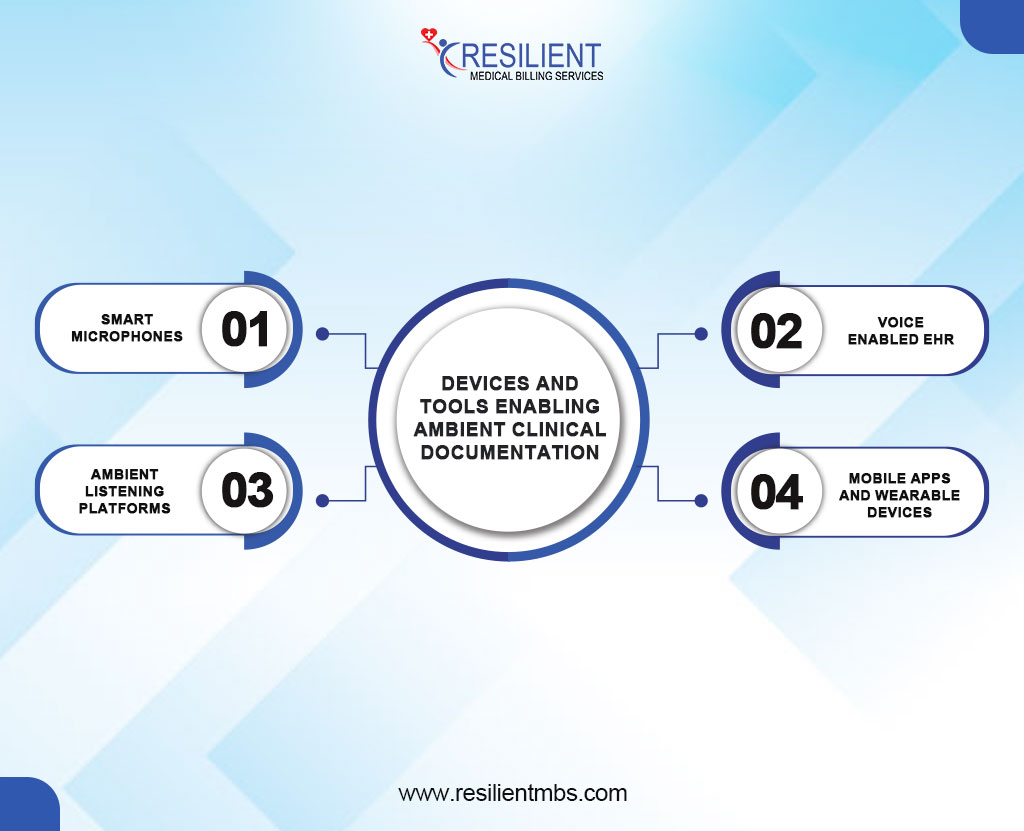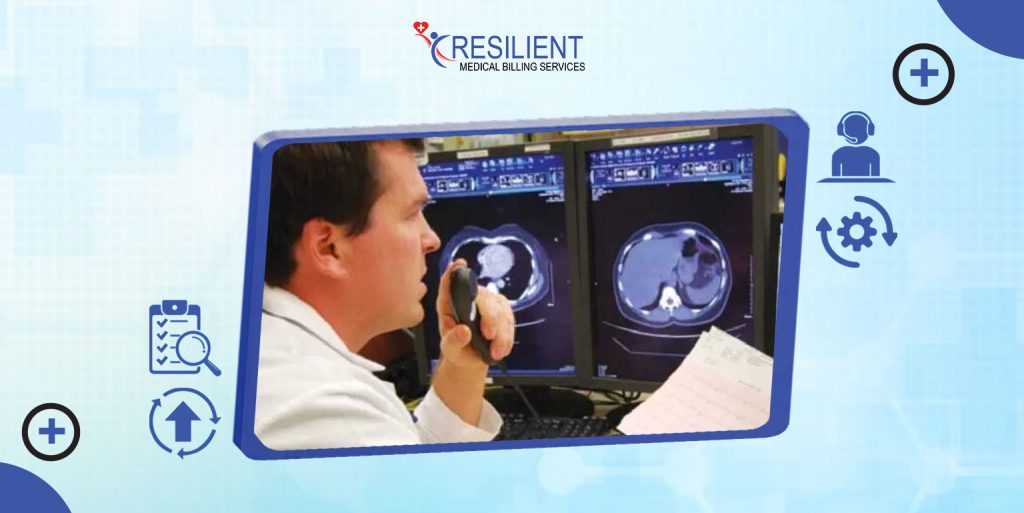Artificial Intelligence (AI) is changing the way healthcare works. It’s helping doctors and nurses provide better care that is faster, more accurate, and more focused on the patient. One exciting new tool leading this change is ambient listening. What Is Ambient Listening in Healthcare? This technology listens to and understands conversations between doctors and patients in real time without getting in the way. It helps with tasks like note-taking and record-keeping, so healthcare providers can focus more on caring for people.
As healthcare becomes busier, tools like ambient AI make it easier to manage paperwork and improve patient care.
In this blog, we’ll explain what ambient listening technology in healthcare is, how it works, and why it’s becoming so valuable in hospitals and clinics.
What is Ambient Listening in Healthcare?
Ambient listening in healthcare means using smart voice technology to listen to conversations between doctors and patients. It works quietly in the background to record, transcribe, and create clinical notes automatically. This helps doctors spend more time focusing on their patients instead of paperwork.
These tools are part of a larger system called ambient AI healthcare. They are designed to fit smoothly into the clinic or hospital without disrupting care. The goal is to make the work easier for healthcare providers and improve the quality of medical practice.
Key Components of Ambient Listening AI
Ambient AI in healthcare uses smart voice technology to listen to conversations between doctors and patients. It automatically writes down what’s said and creates medical notes in real time. This happens quietly in the background, so doctors can focus on their patients instead of paperwork.
These systems are part of a larger group of tools that help make healthcare smoother and faster. They reduce the time spent on writing notes and help keep patient conversations natural and comfortable.
How It Works – NLP and Machine Learning
Ambient AI relies on two main technologies:
Natural Language Processing (NLP): This helps the system understand medical terms and figure out what’s being said. It turns spoken words into written notes.
Machine Learning: This allows the system to keep getting better. It learns how different people speak, including different accents and ways of explaining things. Over time, it becomes more accurate and helpful.
Devices and Tools Enabling Ambient Clinical Documentation
The success of ambient listening AI is largely dependent on the integration of advanced hardware and software tools. These include:

- Smart microphones and edge devices are placed in consultation rooms to capture high-quality audio.
- Voice-enabled EHR (Electronic Health Record) systems that integrate with NLP engines.
- Cloud-based ambient listening platforms that securely process, store, and manage clinical data.
- Mobile apps and wearable devices that extend ambient listening capabilities to telehealth and remote consultations.
Together, these tools support ambient clinical documentation, enabling clinicians to generate real-time, structured medical notes with minimal manual input.
Benefits of Ambient Listening in Clinical Settings
1. Less Stress for Clinicians
Doctors and nurses often feel overwhelmed by paperwork, especially writing notes after each visit. Ambient listening AI helps by automatically recording and writing those notes, giving healthcare workers more time to care for patients and feel less stressed.
2. More Accurate Medical Records
This technology listens to full conversations and uses smart tools to understand and record important information correctly. That means fewer mistakes and better records, which are important for patient care, billing, and legal needs.
3. Faster Access to Information
With real-time note-taking, doctors can see important details right away. This helps them make quicker decisions, plan treatments faster, and involve patients more in their care.
4. Safe and Secure Use of Data
Ambient AI systems are built to protect patient information. They follow strict rules like HIPAA and GDPR, keeping data safe with encryption and secure access. They also track who views or changes the records, helping ensure privacy and trust.
5. Less Stress for Clinicians
Doctors and nurses often feel overwhelmed by paperwork, especially writing notes after each visit. Ambient listening AI helps by automatically recording and writing those notes, giving healthcare workers more time to care for patients and feel less stressed.
6. More Accurate Medical Records
This technology listens to full conversations and uses smart tools to understand and record important information correctly. That means fewer mistakes and better records, which are important for patient care, billing, and legal needs.
7. Faster Access to Information
With real-time note-taking, doctors can see important details right away. This helps them make quicker decisions, plan treatments faster, and involve patients more in their care.
8. Safe and Secure Use of Data
Ambient AI systems are built to protect patient information. They follow strict rules like HIPAA and GDPR, keeping data safe with encryption and secure access. They also track who views or changes the records, helping ensure privacy and trust.
The Future of Ambient Healthcare
Ambient healthcare is changing the way doctors and nurses care for patients. This technology uses smart tools like voice recognition and AI to quietly listen during medical visits, write notes, and help with paperwork. It works in the background so healthcare providers can focus more on their patients.
In the future, this technology will get even better. It will understand speech more clearly, work faster, and help doctors make better decisions. Hospitals and clinics will start using it more often because it saves time and improves care.
As these tools grow smarter, they may even help spot health problems earlier by picking up on things people say or how they say them. With better privacy protections and easier sharing between systems, ambient healthcare will make care more personal, less stressful for doctors, and better for patients.
Concluding Words
Ambient listening in healthcare uses AI to capture and process clinical conversations, helping reduce paperwork and improve patient care. Despite challenges like privacy and adoption, its impact on healthcare delivery is promising.
As these technologies become essential to clinical practice, they will boost efficiency, aid decision-making, and support patient-centered care.
Ready to enhance your practice with ambient AI? Contact Resilient MBS Today to explore advanced solutions for clinical documentation and digital transformation.
FAQS
What is Ambient listening in healthcare?
It’s an AI technology that passively records and processes clinical conversations to create real-time medical documentation.
How does ambient listening AI improve clinical workflows?
It reduces manual note-taking, saves time, and helps clinicians focus more on patient care.
What is ambient clinical documentation?
It’s the automatic generation of medical notes using ambient listening AI during patient visits.
Is ambient listening technology secure?
Yes, most solutions are HIPAA-compliant and use encryption to protect patient data.
What’s the future of ambient AI in healthcare?
Ambient AI is expected to become a standard tool, enhancing care quality, efficiency, and documentation accuracy.










